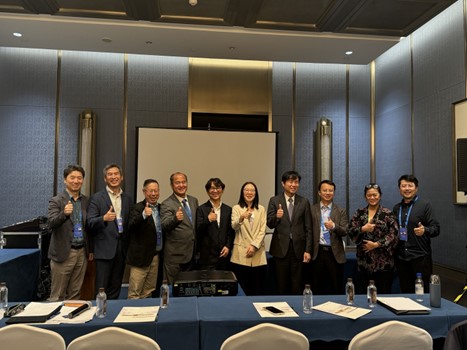ST 2.7

The session on Yellow Sea Biosphere Conservation Cooperation was held on 7 November 2024 at the Xiamen International Conference Center, Xiamen, China. Participants with various backgrounds came from ROK, China, Japan and other countries. (PRF)
”We should cooperatively preserve the Yellow Sea to enjoy the sustainable benefits it offers, enabling our natural environment and communities to thrive well into the future,” stated President Chang Hoon Lee of the Korea Environment Institute at the KEI Session during the second day of the EAS Congress on 7 November 2024.
The ‘Yellow Sea’ session brought together over 15 participants from seven organizations across the East Asian Seas region, fostering a lively exchange of insights on Yellow Sea conservation policies, activities and strategies among Korea, China and Japan.
Presenters emphasized the importance of collaborative management and conservation efforts between the countries bordering the Yellow Sea. They highlighted various national policies and program initiatives aimed at effective management, while panelists offered insights on developing a strategic information-sharing framework grounded in scientific and socio-economic analysis. This approach would consider and address the complex diplomatic and economic interests as well as environmental issues in the region.
The consensus was clear: a joint effort to manage the Yellow Sea is vital for conserving biodiversity, supporting economic sustainability, and advancing the shared vision of a resilient and sustainable ocean.
The session aligned well with Action 3 of the Xiamen Ministerial Declaration by building synergistic approaches in the application of integrated coastal and river basin management, integrated pollution reduction and management, marine and coastal ecosystem conservation and restoration, developing joint research and sharing knowledge, lessons and good practices among the Yellow Sea countries.
“We are committed to strengthening partnerships for Yellow Sea management and enhancing data-sharing initiatives,” concluded Dr. Jong Ho Ahn.

Speakers and Panelists discuss how to develop strategic plans to promote more fluid joint-cooperation. (PRF)
